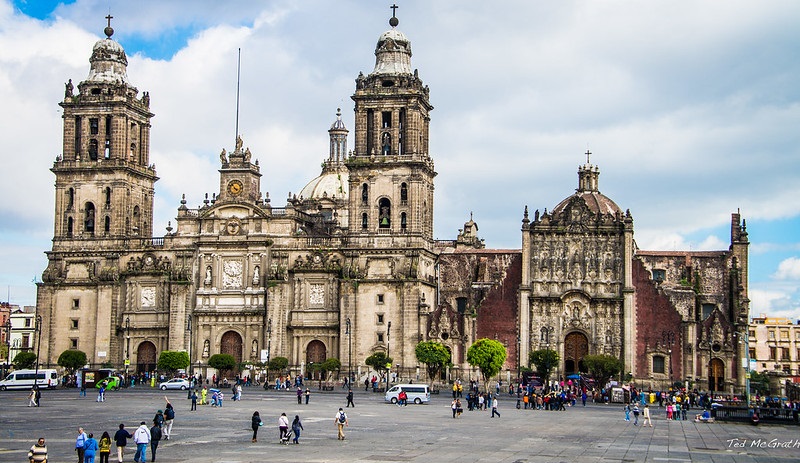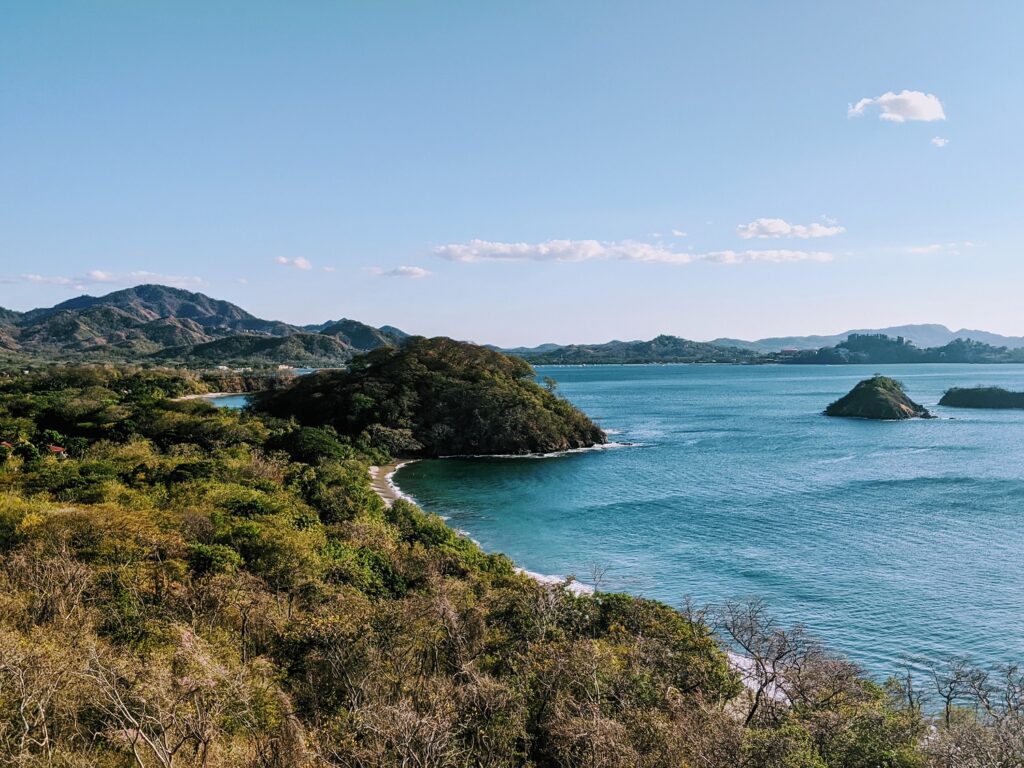Covid-19 has up-rooted life for everyone across the globe. So much has changed in 10 months. Some changes have been difficult, even unbearable. For the most part, human beings are social creatures and we have been forced to turn that off. On the flip side, could there be a silver lining to the pandemic in the ways in which we work? Since March, many have been forced to turn their dining room tables and kitchen counters into home offices while juggling school schedules and zoom dates. For those of us who have been lucky enough to do that, we’ve found ways to make it work.
According to a recent study by GALLUP, they found that, “Nearly two-thirds of U.S. workers who have been working remotely during the pandemic would like to continue to do so.” According to a PwC Remote work survey, over half, 55% of executives plan to offer the option of remote work long term. Many countries and cities have taken this information and created remote work programs or started highlighting existing visa options, that welcome people to find a new place to call home.
You can find more information on this here and here.
Since the office is obviously changing and no longer needs to be confined to your home, would you consider working in another country or state? Many people are, remote work programs are popping up in places like Hawaii, Aruba, Croatia and more. Sound intriguing? Here are 17 places (+ one coming soon!) that are welcoming remote workers.
Before applying to any program please consider all safety protocols due to the Covid-19 pandemic. In the US, The Centers for Disease Control and Prevention do not advise against nonessential travel, but they do warn that “travel increases your chance of getting and spreading COVID-19.”
Remote Work Programs in the Caribbean:
Cayman Islands, The Global Citizen Concierge Program
Work for up to two years in paradise, but only if you’re making some serious cash. Their program appears to be looking to attract a certain client – a wealthy one. Individual applicants must make over $100,000 or for families at least $150,000. The application is extensive but if you pass, you can live and work up to two years on the island.
Eligible applicants must show proof of employment, health insurance, complete a background check and pay a certificate fee. The certificate fee is $1,469 per year for an individual or couple, plus $500 per child.

Anguilla
For up to one year you can have work, life and bliss according to the Anguilla Tourism Board. Aside from working, they even provide information to interested applicants on how to register children to be homeschooled through the schools on the island.
The application is online, if you’re staying less than three months, the fee is $1,000 for individuals and $1,500 for a family of four. Those staying over three months must pay $2,000, and $3,000 for a family of four.

Bermuda
Dreamy pink sands could make a beautiful Zoom backdrop! For up to one-year, eligible workers and students enrolled in an educational program can call Bermuda home. Interested applicants must show proof of employment or educational enrollment, meet income requirements, obtain health insurance and be 18 or older.
The application fee is $263, and you can apply online. According to their website, after applying you will receive a response within five days.
If you’re not sure you really want to live there for a year, they have extended their tourist visa from 90 to 180 days.

Antigua and Barbuda, Nomad Digital Residence Program
Remote workers can live and work in Antigua and Barbuda for up to two years.
Application fees are $1,500 for individuals, $2,000 for couples and families of three or more it is $3,000. Applicants must show proof of employment (earning at least $50,000 a year) and medical insurance. The application is available online.

Aruba, One Happy Workcation
For up to 90 days you can enjoy the sun and white sands of Aruba while you work. The One Happy Workcation program offers package deals and discounts on lodging as well as free wifi and other perks. Currently the program is only open to US passport holders. Visitors are able to bring their canine and feline friends too!
Even better, there isn’t an official application. You just need to book one of the package deals that they offer according to the Aruba tourism website.

Barbados Welcome Stamp Program
The new Visa program allows visitors to live and work on the island for up to one year. Chairman of Barbados Tourism Marketing Inc., Sunil Chatrani, said that “the working environment in Barbados definitely enables you to get things done,” and said it has “the fastest fiber internet and mobile services in the Caribbean,” as well as “a range of flexible office space locations.”
The application is available online and the fee for individuals is $2,000 and $3,000 for a family.

Jamaica, Extended Visa Program
You can easily live and work in this beautiful country for 30 days, but now can apply to extend that to six months. The application isn’t available online. The first step is to contact your closest Jamaican Embassy or consulate. Due to Covid-19 there are travel requirements in place, make sure to check them out before you go.
European Remote Work Programs:
It is important to note that European programs are not currently open to US citizens due to Covid-19 closures.
Work in Iceland
Iceland recently rolled out it’s remote work program that will allow people to work in Iceland for up to 180 days. Any country that doesn’t require a visa to visit Iceland is eligible to apply. The full list is on their site.
To apply, you must show you have employment and make at least 1 million Icelandic krona which is about $7,360 a month.
Estonia, Digital Nomad Visa
According to the Republic of Estonia, this Digital Nomad Visa is the first in the EU. The new visa allows visitors to live and work in the country for up to one year.
Applicants must show proof of employment and that they earn at least $4,130 per month. The application fee is between $94 – $117 depending on your length of stay. After completing the application, you must print and sign it and make an appointment at your nearest Estonian Embassy or Consulate to formally apply.

The country of Georgia’s new visa program
Enjoy the beautiful Caucasus Mountains, the highest range in Europe, while working remotely. The new visa program will allow applicants to live and work in the country for at least one year (for some countries) and up to 180 for others.
Eligible applicants must earn $2,000 a month, have health insurance for the duration of their stay and quarantine for up to 12 days upon arrival. Remote workers will also be expected to pay taxes. Applications are available online.

The Czech Republic’s zivno visa, or long-term business visa
This visa wasn’t created due to Covid-19, it’s been around awhile. The visa is aimed at workers who want to live and work in the Czech Republic for more than 90 days. Interested applicants must get in contact with their closest Czech Republic Consular Office (there are only four in the US!)
And fill out an application. You will be required to meet income requirements and have medical insurance for your stay. Currently, US citizens would not be eligible to apply until EU restrictions on travel are lifted. When restrictions are lifted, I would definitely suggest checking out Move to Prague’s tips on the process.

Spain’s Non-Lucrative Visa
Spain’s Non-Lucrative Visa also sometimes referred to as a retirement visa allows individuals to stay in the country for longer than 3 months. You are not allowed to work for a Spanish based company while on the visa, you are however able to work remotely for a company outside the country.
In order to qualify you must prove that you have sufficient income, you must have four times the current year’s IPREM, Indicador Público de Renta de Efectos Múltiples. You will also need to register for private Spanish health insurance. Check out an article written by an American expat on his experience going through the process.
The application must be completed in person (plan to do it at least 3 months before you want to leave) and all documents for the visa need to be in Spanish. The full details of the process can be found on the Government of Spain’s website.

Germany’s “Freiberufler” Visa
The “freiberufler” visa is aimed at freelance and remote workers to live and work in Germany for three months, but there is an option for it to become a residency permit. To apply, you must submit the completed application and all supporting documentation to a German Embassy or Consulate in the country where you live. Supporting documentation includes a portfolio of work, proof of income, health insurance, recommendation letters and more. Check out their website for the full list. The application is 60 euros or about $73. Note, once approved and working in Germany, you will have to pay taxes.
Another helpful source on obtaining this visa is All About Berlin, be sure to check them out before you start the remote work programs process.

United Arab Emirates Program:
Work Remotely from Dubai
Live and work in exotic Dubai for up to a year thanks to their new visa program. Applicants and their families will receive a local bank account, phone number, Wi-Fi and even the ability to enroll kids in school during the year.
If you’re interested in applying for this remote work programs, the application fee is $287, and you must show proof of employment and that you make at least $5,000 a month. You will also have to obtain health insurance that is valid in the country and complete a negative COVID-19 PCR test 96 hours before your departure.

US, Central America & Mexico Programs:
Hawaii’s Movers and Shakas
The Movers and Shakas program is selecting 50 applicants to come to the island to work remotely and will provide special deals on lodging, coworking spaces and free airfare! Those who are accepted into the program are required to take the Pledge to Our Keiki and agree to helping protect the Hawaiian environment as well as give a few hours every week to a nonprofit organization.
Interested applicants must apply online and agree to stay a minimum of 30 days and be a US Citizen. Currently, the remote work programs set up for only domestic U.S. workers, but they hope to open the program to international remote workers with existing US work visas in the future. If you go, and are safely able, make sure you visit Maui!

Mexico, Resident Visa Program
Another program that was developed long before Covid -19. It allows visitors to live in the country for up to one year, after that it could be extended for three more years. After five years of legal residency, a resident may be eligible for naturalization. The Resident Visa does not allow you to seek employment within the country. You must already have employment outside the country.
Eligible applicants must have an income of at least $1,620 a month or a bank account with more than $270,000. The application is available online. After filling out the application you need to make an appointment for an interview at the Mexican consulate nearest you. For the interview you will be required to bring all supporting documentation for the application.

Costa Rica, Rentista Visa
You can spend up to two years enjoying all the “Pura Vida” that Costa Rica has to offer. There is a catch, you must be an entrepreneur or self-employed, you can’t be an employee of another company. You must also have a regular monthly income of at least $2,500 (and be able to prove that it has been stable for two years). According to the Costa Rican Government’s website, “Usually, this requirement is met by making a bank deposit of $60,000 at a local bank and by obtaining a commitment letter that at least $2,500 per month will be made available.” It is not clear from their site if you have other options to prove financial means.
The application fee is $50, and all additional requirements can be found on the Costa Rican Embassy’s site. After having a temporary visa for over three years, you may be eligible for permanent residence.

A Program Coming Soon!
Croatia, Digital Nomad Program
Over the last few months, the Croatian government and Prime Minister have been working to regulate a Digital Nomad Visa. It appears approvals are close, and it could take effect January 2021. Details of the program have not been released.
As the way we work continues to evolve it will be interesting to see if more countries decide to extend visa programs or add remote work programs. If you’re currently considering one of these programs, please make sure to review the countries safety protocols to ensure you’re keeping yourself and your potential new neighbors safe.

About the Author
Hello & thanks for reading! I am Rebecca the Creator of Veggies Abroad, a vegan travel blog. You can find me at www.veggiesabroad.com and on Instagram @veggiesabroad






